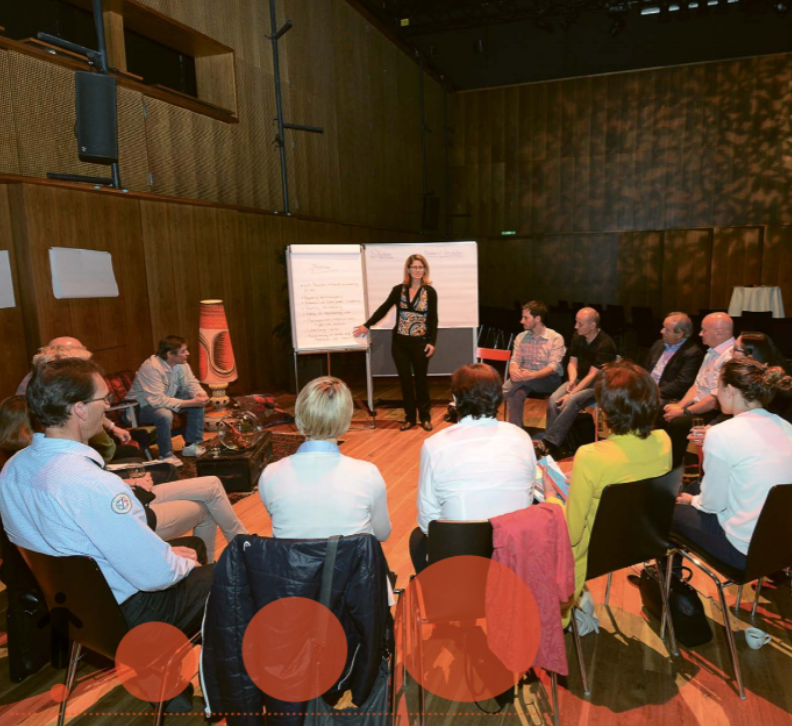Austria
The state of Vorarlberg in Austria is a pioneer in establishing citizens' councils and involving the population in policy-making and planning, especially at local level. Citizens' councils are involved in planning and allocation of resources according to the method of "dynamic facilitation".
To implement a simple, inexpensive and quick way of strengthening self-organization and personal responsibility in the population
Participants are selected at random so the Council "represents a broad spectrum of opinions and diverse array of lifestyles." For example according to the final report on the citizen's council on Asylum and refugee policies "six hundred and forty randomly selected citizens from the whole of Vorarlberg were invited to take part. The youngest participant was eighteen years of age, the oldest participant seventy-five years of age.
Vorarlberg, is the westernmost federal state of Austria, also well known for its tradition of citizen participation in the decision-making process. In this state the Citizen's Councils process has been experimented for the first time in 2006 and over time it has been implemented more and more.
The citizen's council
The citizen's council (Burgerrat in german) is a model of deliberative process. In a first instance, all the participants can propose some issues of public interest to be discussed by the Citizens' council. Then, they develop solutions to the problems identified and they propose some recommendations that are discussed with the broader public in a Citizen cafe. After these recommendations are presented to the public authority. A small group of participants is assigned to follow up with the government the recommendations' implementation.
The positive effects reached by this program led to the institutionalisation of the Citizens' Councils in 2013 by a constitutional amendment that declared '' The state of Vorarlberg wants to focus on a participatory democracy''.

The citizens' council is a multi-stage participation process. Randomly selected citizens work together in one and a half days to find solutions to social challenges. These are then presented to the public and discussed.
Who is invited to a citizens' council?
Citizens of a town or region are selected at random from the population register. They are supposed to work together on a joint declaration for a day and a half. In order to ensure a broad and qualitative image of Vorarlberg society, criteria such as age, gender and place of residence are taken into account in the selection. Due to the random selection, the participants are people with everyday knowledge who have no special prior knowledge or special qualifications. In particular, they do not represent interest groups, but their personal opinion.
How does a citizens' council work?
The participants in the citizens' council, mostly twelve to fifteen people, are invited to discuss certain topics and questions, to show challenges from their point of view and to develop ideas for solutions. In terms of content, the Citizens' Council is neither instructed nor controlled in any way. It is moderated using the solution-oriented method "Dynamic Facilitation".
Public presentation in the Bürgercafé
At the end of a citizens' council, a joint statement supported by all participants is drawn up. This will be presented, discussed and extended to the interested public, as well as contact persons from administration, community, politics and relevant institutions in a timely "Bürgercafé".
What will happen to the results?
In a meeting of the "resonance group" (strategy group made up of representatives from politics, administration, etc.), the proposals of the citizens' council are checked for concrete implementation and further measures are taken. The citizens' council participants then receive written feedback on how the results will be used.
Sources (in English and German):
- Bügerrate in Vorarlberg (PDF)
- Council of Europe report on direct and participatory democracy
- Vorarlberg Citizen Council on Asylum and Refugees policies in Participedia
- The Vorarlberg Bürgerrat model, aka Citizens' Councils in Participedia
- Citizens' Council in Vorarlberg : building a culture of participation, Ieva Censulaityte